Editors & Staff
Scientific Editors
Natalie Cain, Executive Editor
 [email protected]
[email protected]  @NatalieCainSci
@NatalieCainSci![]() @nataliecain.bsky.social
@nataliecain.bsky.social
 Natalie received her Ph.D. in biology from the Massachusetts Institute of Technology, working on membrane protein trafficking mechanisms under Chris Kaiser. She performed postdoctoral research with Daniel Starr at the University of California Davis, studying mechanisms of nuclear positioning. Natalie began her editorial career at Cell Reports in 2017 and advanced to Deputy Editor in 2020. There, she managed the editorial process for manuscripts in a broad array of topics, such as immunology, metabolism, cancer, neuroscience, and stem cell/developmental biology. She joined JEM as Executive Editor in 2025.
Natalie received her Ph.D. in biology from the Massachusetts Institute of Technology, working on membrane protein trafficking mechanisms under Chris Kaiser. She performed postdoctoral research with Daniel Starr at the University of California Davis, studying mechanisms of nuclear positioning. Natalie began her editorial career at Cell Reports in 2017 and advanced to Deputy Editor in 2020. There, she managed the editorial process for manuscripts in a broad array of topics, such as immunology, metabolism, cancer, neuroscience, and stem cell/developmental biology. She joined JEM as Executive Editor in 2025.
Declares no conflict of interest.
Gaia Trincucci, Deputy Editor
 [email protected]
[email protected]  @Gaia_JExpMed
@Gaia_JExpMed![]() @gaiajexpmed.bsky.social
@gaiajexpmed.bsky.social
 Gaia received her PhD in Cell Biology from the University of Basel, Switzerland, studying the role of Type III interferons in chronic hepatitis C. She pursued her postdoctoral work with Abraham Brass and Kate Fitzgerald at UMass Chan Medical School, focusing on the innate immune response to virus-host interaction. She joined the Journal of Experimental Medicine as a Scientific Editor in 2018 and became Deputy Editor in 2023. As Deputy Editor, Gaia leads the commissioning and publication of JEM Viewpoints and Found inTranslation.
Gaia received her PhD in Cell Biology from the University of Basel, Switzerland, studying the role of Type III interferons in chronic hepatitis C. She pursued her postdoctoral work with Abraham Brass and Kate Fitzgerald at UMass Chan Medical School, focusing on the innate immune response to virus-host interaction. She joined the Journal of Experimental Medicine as a Scientific Editor in 2018 and became Deputy Editor in 2023. As Deputy Editor, Gaia leads the commissioning and publication of JEM Viewpoints and Found inTranslation.
Declares no conflict of interest.
Montserrat Cols, Senior Scientific Editor
 [email protected]
[email protected]
 @Montse_JExpMed
@Montse_JExpMed![]() @montse-jexpmed.bsky.social
@montse-jexpmed.bsky.social
 Montserrat (Montse) received her PhD from Keele University in the UK. She then trained with Dr. Andrea Cerutti at Mount Sinai School of Medicine and more recently worked with Dr. Jayanta Chaudhuri at the Sloan Kettering Institute. Throughout her training and appointments, her particular focus has been on many aspects relating to B cell biology. Montse joined the Journal of Experimental Medicine as a Scientific Editor in 2020. Montse is in charge of the JEM volunteer program.
Montserrat (Montse) received her PhD from Keele University in the UK. She then trained with Dr. Andrea Cerutti at Mount Sinai School of Medicine and more recently worked with Dr. Jayanta Chaudhuri at the Sloan Kettering Institute. Throughout her training and appointments, her particular focus has been on many aspects relating to B cell biology. Montse joined the Journal of Experimental Medicine as a Scientific Editor in 2020. Montse is in charge of the JEM volunteer program.
Declares no conflict of interest.
Zhijuan Qiu, Senior Scientific Editor
 [email protected]
[email protected] @Zhijuan_JExpMed
@Zhijuan_JExpMed
 Zhijuan (pronounced zee-jen) received her PhD from the University of Connecticut Health Center, where she focused on developing T cell-based cancer vaccines and understanding the role of pregnane X receptor in innate immunity under the supervision of Dr. Kamal Khanna. After obtaining her PhD, Zhijuan went on to study the role of follicular helper T cells and CD8 T cells during influenza infection in the lab of Dr. Laura Haynes at the University of Connecticut Health Center for a year, and memory CD8 T cell development in the lab of Dr. Brian Sheridan at Stony Brook University. Zhijuan joined Communications Biology as an Associate Editor in February 2022 before joining the Journal of Experimental Medicine as a Scientific Editor in March 2023 and became a Senior Scientific Editor in 2025.
Zhijuan (pronounced zee-jen) received her PhD from the University of Connecticut Health Center, where she focused on developing T cell-based cancer vaccines and understanding the role of pregnane X receptor in innate immunity under the supervision of Dr. Kamal Khanna. After obtaining her PhD, Zhijuan went on to study the role of follicular helper T cells and CD8 T cells during influenza infection in the lab of Dr. Laura Haynes at the University of Connecticut Health Center for a year, and memory CD8 T cell development in the lab of Dr. Brian Sheridan at Stony Brook University. Zhijuan joined Communications Biology as an Associate Editor in February 2022 before joining the Journal of Experimental Medicine as a Scientific Editor in March 2023 and became a Senior Scientific Editor in 2025.
Declares no conflict of interest.
Lucie Van Emmenis, Senior Scientific Editor
 [email protected]
[email protected] @Lucie_JExpMed
@Lucie_JExpMed ![]() @lucie-jexpmed.bsky.social
@lucie-jexpmed.bsky.social

Editorial Board Co-Chairs
Carl Nathan, Editorial Board Co-Chair
 Carl Nathan is an R.A. Rees Pritchett Professor of Microbiology and Chairman emeritus of the Department of Microbiology and Immunology at Weill Cornell Medicine. After studying and working at Harvard College, Harvard Medical School, Massachusetts General Hospital, the National Cancer Institute, and Yale, Carl was board certified in internal medicine and oncology but decided on full-time research. For the first 10 years, his lab was in Zanvil Cohn’s group at The Rockefeller University. He then moved to the medical college at Cornell, where he has served as founding director of the Tri-Institutional MD-PhD Program, Senior Associate Dean for Research, Acting Dean, Chairman of the Department of Microbiology and Immunology, Chairman emeritus of the program in Immunology and Microbial Pathogenesis in the Weill Cornell Graduate School of Medical Sciences, and dean of the graduate school. Nathan began studying neutrophils in high school. His interests grew to include macrophages, tumor cells, inflammation, tuberculosis, reactive oxygen intermediates, reactive nitrogen intermediates, immunology, biochemistry, and chemical biology. Carl joined the editorial board of the Journal of Experimental Medicine as an Assistant Editor in 1981 and has been an Academic Editor since 1988.
Carl Nathan is an R.A. Rees Pritchett Professor of Microbiology and Chairman emeritus of the Department of Microbiology and Immunology at Weill Cornell Medicine. After studying and working at Harvard College, Harvard Medical School, Massachusetts General Hospital, the National Cancer Institute, and Yale, Carl was board certified in internal medicine and oncology but decided on full-time research. For the first 10 years, his lab was in Zanvil Cohn’s group at The Rockefeller University. He then moved to the medical college at Cornell, where he has served as founding director of the Tri-Institutional MD-PhD Program, Senior Associate Dean for Research, Acting Dean, Chairman of the Department of Microbiology and Immunology, Chairman emeritus of the program in Immunology and Microbial Pathogenesis in the Weill Cornell Graduate School of Medical Sciences, and dean of the graduate school. Nathan began studying neutrophils in high school. His interests grew to include macrophages, tumor cells, inflammation, tuberculosis, reactive oxygen intermediates, reactive nitrogen intermediates, immunology, biochemistry, and chemical biology. Carl joined the editorial board of the Journal of Experimental Medicine as an Assistant Editor in 1981 and has been an Academic Editor since 1988.
Scientific advisory boards: Cancer Research Institute, Rita Allen Foundation, Montrone-Seigel Prize (formerly, Lurie Prize) jury for Foundation for the NIH
Governing boards: Tres Cantos Open Lab Foundation, Tri-Institutional Therapeutics Discovery Institute, Rita Allen Foundation
Editorial boards: Journal of Experimental Medicine, Proceedings of the National Academy of Sciences, Science Translational Medicine.
Founder and advisor: IpiNovyx Bio, Inc.
Patents: Compounds that target M. tuberculosis and P. falciparum and immunoproteasomes.
Funding sources: the Nathan lab receives grants from the National Institutes of Health and Bill & Melinda Gates Foundation and has a collaborative research agreement with the Global Alliance for TB Drug Development.
Michel Nussenzweig, Editorial Board Co-Chair
 Michel Nussenzweig is a Sherman Fairchild Professor, Senior Physician, and a Howard Hughes Investigator at The Rockefeller University. Michel earned a PhD from The Rockefeller University for his work with Ralph Steinman on dendritic cells and an MD from NYU Medical School. Following training in medicine and infectious diseases at the Massachusetts General Hospital, he worked with Dr. Philip Leder in the Department of Genetics at Harvard Medical School on antibody genes. His laboratory focuses on understanding B cell and dendritic cell physiology. Michel became an Academic Editor of the Journal of Experimental Medicine in 1995.
Michel Nussenzweig is a Sherman Fairchild Professor, Senior Physician, and a Howard Hughes Investigator at The Rockefeller University. Michel earned a PhD from The Rockefeller University for his work with Ralph Steinman on dendritic cells and an MD from NYU Medical School. Following training in medicine and infectious diseases at the Massachusetts General Hospital, he worked with Dr. Philip Leder in the Department of Genetics at Harvard Medical School on antibody genes. His laboratory focuses on understanding B cell and dendritic cell physiology. Michel became an Academic Editor of the Journal of Experimental Medicine in 1995.
Scientific Advisory Board: CellDex Therapeutics, Frontier Biotechnology, the Austrian Academy of Sciences, and the Jackson Laboratory.
Editorial Boards: Journal of Experimental Medicine and Journal of Immunological Methods.
Patents: Rockefeller University owns patents for the 3BNC117 antibody being developed by Frontier Biotechnology. Michel Nussenzweig is an inventor on patents for antibodies to HIV-1 that have been licensed to Gilead by Rockefeller University. The Rockefeller University has applied for patents on SARS-2 antibodies on which Michel Nussenzweig is an inventor. The Rockefeller University has licensed the SARS-2 antibodies to Bristol Meyers Squibb.
Funding sources: the Nussenzweig laboratory receives research grants from the National Institutes of Health, The Bill and Melinda Gates Foundation, The Lyda Hill Foundation, The Wennett Cader Foundation, The Robertson Fund of the Rockefeller University. Dr. Nussenzweig is an HHMI investigator.
Academic Editors
Jean-Laurent Casanova, Editor
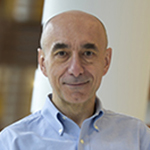 Jean-Laurent Casanova is the Levy Family Professor at The Rockefeller University, Howard Hughes Medical Institute Investigator, and Head of the St. Giles Laboratory of Human Genetics of Infectious Diseases, Rockefeller Branch. He is also a Professor at the Necker Hospital for Sick Children, Paris Cité University, where the Necker Branch of the Laboratory is located. Jean-Laurent received his PhD from the Pierre et Marie Curie Paris University in 1992 after being trained at the Pasteur Institute in Paris and the Ludwig Institute for Cancer Research in Lausanne. He received his MD in 1995 following medical studies and a residency in pediatrics in Paris. He then completed a clinical fellowship in the pediatric immunology−hematology unit of the Necker Hospital for Sick Children in Paris. In 1999 he was appointed a Professor of Pediatrics at Necker, where, with Laurent Abel, he cofounded and co-directed the Laboratory of Human Genetics of Infectious Diseases. He was recruited by the Rockefeller University in 2008 and appointed an Investigator at the Howard Hughes Medical Institute in 2014. Work in his laboratory focuses on identifying monogenic disorders and their autoimmune phenocopies, rare or common, that selectively compromise immunity to a single infection in otherwise healthy children and adults. Jean-Laurent became an Academic Editor of the Journal of Experimental Medicine in 2006.
Jean-Laurent Casanova is the Levy Family Professor at The Rockefeller University, Howard Hughes Medical Institute Investigator, and Head of the St. Giles Laboratory of Human Genetics of Infectious Diseases, Rockefeller Branch. He is also a Professor at the Necker Hospital for Sick Children, Paris Cité University, where the Necker Branch of the Laboratory is located. Jean-Laurent received his PhD from the Pierre et Marie Curie Paris University in 1992 after being trained at the Pasteur Institute in Paris and the Ludwig Institute for Cancer Research in Lausanne. He received his MD in 1995 following medical studies and a residency in pediatrics in Paris. He then completed a clinical fellowship in the pediatric immunology−hematology unit of the Necker Hospital for Sick Children in Paris. In 1999 he was appointed a Professor of Pediatrics at Necker, where, with Laurent Abel, he cofounded and co-directed the Laboratory of Human Genetics of Infectious Diseases. He was recruited by the Rockefeller University in 2008 and appointed an Investigator at the Howard Hughes Medical Institute in 2014. Work in his laboratory focuses on identifying monogenic disorders and their autoimmune phenocopies, rare or common, that selectively compromise immunity to a single infection in otherwise healthy children and adults. Jean-Laurent became an Academic Editor of the Journal of Experimental Medicine in 2006.
Scientific advisory boards/consulting: ADMA, Elixiron Immunotherapeutics, KymeraTX, Micoy Therapeutics.
Editorial boards: Journal of Experimental Medicine, Journal of Human Immunity.
Patent applications: Inventor on a pending patent application that covers diagnosis of susceptibility to, and treatment of, viral disease and viral vaccines, including Covid-19 and vaccine-associated diseases. This pending patent application is currently not licensed.
Funding sources: The Casanova lab receives research grants from the National Institutes of Health, the Lupus Research Alliance, and the French National Research Agency (ANR). Dr. Casanova is an HHMI investigator.
Sara Cherry, Editor
 Sara Cherry is a Professor in the Department of Pathology and Laboratory Medicine and the Department of Biochemistry and Biophysics, Scientific Director of the High-throughput Screening Core and Director of the Chemogenomic Discovery Program in the School of Medicine at the University of Pennsylvania. She obtained her BS with Dr. Peter Schultz at Berkeley synthesizing new biopolymers for drug scaffolds, and then her PhD with Dr. David Baltimore at MIT studying early B cell development. Next, she completed her postdoctoral fellowship with Dr. Norbert Perrimon where she developed high-throughput RNAi screening to study virus-host interactions. She started her laboratory at Penn in 2006 where she has applied cell-based screening approaches to discover mechanisms by which diverse viral pathogens hijack cellular machinery while evading innate immune defenses. Sara joined JEM as an Academic Editor in 2020.
Sara Cherry is a Professor in the Department of Pathology and Laboratory Medicine and the Department of Biochemistry and Biophysics, Scientific Director of the High-throughput Screening Core and Director of the Chemogenomic Discovery Program in the School of Medicine at the University of Pennsylvania. She obtained her BS with Dr. Peter Schultz at Berkeley synthesizing new biopolymers for drug scaffolds, and then her PhD with Dr. David Baltimore at MIT studying early B cell development. Next, she completed her postdoctoral fellowship with Dr. Norbert Perrimon where she developed high-throughput RNAi screening to study virus-host interactions. She started her laboratory at Penn in 2006 where she has applied cell-based screening approaches to discover mechanisms by which diverse viral pathogens hijack cellular machinery while evading innate immune defenses. Sara joined JEM as an Academic Editor in 2020.
Funding sources: the Cherry lab receives grants from the National Institutes of Health, Mark Foundation, and the Burroughs Wellcome Fund. The Cherry lab has a collaborative research agreement with Merck.
Jonathan Kipnis, Editor
 Dr. Jonathan (Jony) Kipnis is BJC Investigator, Alan A. and Edith L. Wolff Distinguished Professor of Pathology and Immunology at Washington University in St. Louis, School of Medicine. He is also an inaugural Director of the Brain immunology and Glia (BIG) Center.
Dr. Jonathan (Jony) Kipnis is BJC Investigator, Alan A. and Edith L. Wolff Distinguished Professor of Pathology and Immunology at Washington University in St. Louis, School of Medicine. He is also an inaugural Director of the Brain immunology and Glia (BIG) Center.
Jony graduated from the Weizmann Institute of Science in Israel, where he was a Sir Charles Clore scholar. Kipnis lab focuses on the complex interactions between the immune system and the central nervous system (CNS). The fascination with immunity and its role in neurophysiology is what brought the team to a discovery of meningeal lymphatic vessels that drain the CNS into the peripheral lymph nodes and thus serve as a physical connection between the brain and the immune system. This finding challenged the prevailing dogma of CNS being an “immune privileged organ” and opened new avenues to mechanistically study the nature of neuroimmune interactions under physiological and pathological conditions. Dr. Kipnis is a recipient NIH Director’s Pioneer award for 2018 and a member of the National Academy of Medicine. Jony joined Journal of Experimental Medicine as an academic editor in 2021.
Scientific advisory board/consulting: Rho Bio, Pranas Neuroscience, IMM, Fibralign
Editorial boards: Journal of Experimental Medicine, Trends in Immunology, Brain.
Funding sources: NIH, Cure Alzheimer’s Fund, Ludwig Family foundation, BJC Health, Corsalex, Neuroscience Innovation Foundation, Eisai
Paul Kubes, Editor
 Paul Kubes is the Canada Excellence Research Chair (CERC) in Immunophysiology and Immunotherapy at Queen's University. He did his PhD in cardiovascular physiology at Queen’s followed by a postdoctoral fellowship at Louisiana State University elucidating the mechanisms of ischemia reperfusion injury. He joined the faculty at the University of Calgary Cumming School and became interested in how immune cells trafficked to injured tissue, imaging immune cells in vivo using intravital microscopy. He is now at Queen’s studying how myeloid cells incorporate into healthy tissues and mediate homeostasis and how sterile and infectious perturbations affect the immune system.
Paul Kubes is the Canada Excellence Research Chair (CERC) in Immunophysiology and Immunotherapy at Queen's University. He did his PhD in cardiovascular physiology at Queen’s followed by a postdoctoral fellowship at Louisiana State University elucidating the mechanisms of ischemia reperfusion injury. He joined the faculty at the University of Calgary Cumming School and became interested in how immune cells trafficked to injured tissue, imaging immune cells in vivo using intravital microscopy. He is now at Queen’s studying how myeloid cells incorporate into healthy tissues and mediate homeostasis and how sterile and infectious perturbations affect the immune system.
Declares no conflicts of interest.
Lewis L. Lanier, Editor
 Lewis L. Lanier is the J Michael Bishop MD Distinguished Professor Emeritus of Microbiology and Immunology at the University of California, San Francisco. Lewis received his PhD in microbiology and immunology from the University of North Carolina at Chapel Hill. After postdoctoral studies, first at the Lineberger Cancer Center at UNC Chapel Hill and then as a Damon Runyon−Walter Winchell Cancer Research Fellow at the University of New Mexico, he joined the Research & Development Department at the Becton Dickinson Monoclonal Center in Mountain View, California, advancing to Associate Director of Research, and was a Becton Dickinson Research Fellow. In 1990, he joined the DNAX Research Institute of Molecular and Cellular Biology in Palo Alto, California, where he advanced to Director of Immunobiology. In 1999, Lewis joined the faculty of UCSF. His research group studies natural killer (NK) cells, which recognize and eliminate cells that have become transformed or infected by viruses. Lewis has been an Academic Editor of the Journal of Experimental Medicine since 2008.
Lewis L. Lanier is the J Michael Bishop MD Distinguished Professor Emeritus of Microbiology and Immunology at the University of California, San Francisco. Lewis received his PhD in microbiology and immunology from the University of North Carolina at Chapel Hill. After postdoctoral studies, first at the Lineberger Cancer Center at UNC Chapel Hill and then as a Damon Runyon−Walter Winchell Cancer Research Fellow at the University of New Mexico, he joined the Research & Development Department at the Becton Dickinson Monoclonal Center in Mountain View, California, advancing to Associate Director of Research, and was a Becton Dickinson Research Fellow. In 1990, he joined the DNAX Research Institute of Molecular and Cellular Biology in Palo Alto, California, where he advanced to Director of Immunobiology. In 1999, Lewis joined the faculty of UCSF. His research group studies natural killer (NK) cells, which recognize and eliminate cells that have become transformed or infected by viruses. Lewis has been an Academic Editor of the Journal of Experimental Medicine since 2008.
Scientific Advisory Board: Cullinan Oncology, Dragonfly, DrenBio, Edity, GV20, IMIDomics, InnDura Therapeutics, Mendus, Nextpoint, Nkarta, Obsidian Therapeutics, oNKo, SBI Biotech, Stamford Parma
Editorial Boards: Journal of Experimental Medicine, Proceedings of the National Academy of Sciences, Cancer Immunology Research.
Patents:U.S. Patents #6,140,076, #6,416,973, #6,479,638 B1, #6,953,843 B2, #7,319,140, #7,332,574, #7,659,093, #7,999,078, #7,998,481, #8,637,011, #9,211,328, #9,683,996.
Funding sources: NIAID.
Daniel Mucida, Editor
 Dr. Mucida received his undergraduate degree in biology, with an emphasis on biochemistry and immunology, from the Federal University of Minas Gerais in Brazil in 2000. He received his Ph.D. jointly from the University of São Paulo and New York University in 2005. After postdoctoral studies at the La Jolla Institute from 2006 to 2010, he joined The Rockefeller University as Assistant Professor in 2010. In 2016, he was promoted to Associate Professor. In 2021 he was promoted to Professor, with tenure and nominated HHMI investigator. The Mucida lab studies how the immune system associated with intestinal mucosae can generate efficient immune responses without jeopardizing its tolerance to innocuous antigens. His expertise covers intestinal immunology, food allergy, barrier immunity, IBD, IBS, microbiome and neuro-immune interactions, and enteric infections.
Dr. Mucida received his undergraduate degree in biology, with an emphasis on biochemistry and immunology, from the Federal University of Minas Gerais in Brazil in 2000. He received his Ph.D. jointly from the University of São Paulo and New York University in 2005. After postdoctoral studies at the La Jolla Institute from 2006 to 2010, he joined The Rockefeller University as Assistant Professor in 2010. In 2016, he was promoted to Associate Professor. In 2021 he was promoted to Professor, with tenure and nominated HHMI investigator. The Mucida lab studies how the immune system associated with intestinal mucosae can generate efficient immune responses without jeopardizing its tolerance to innocuous antigens. His expertise covers intestinal immunology, food allergy, barrier immunity, IBD, IBS, microbiome and neuro-immune interactions, and enteric infections.
Declares no conflict of interest.
William A. (Bill) Muller, Editor Emeritus
 William A. Muller is the Magerstadt Professor and Chairman of the Department of Pathology at Northwestern University Feinberg School of Medicine. He received his PhD degree from The Rockefeller University and an MD degree from Cornell University Medical College. He did residency/postdoctoral fellowship training at the Massachusetts General Hospital and Brigham and Women’s Hospital in Boston before returning to Rockefeller and Cornell to set up his own laboratory. Bill was recruited to Northwestern in 2007. His research interests focus on the cellular and molecular biology of the inflammatory response, particularly from the perspective of the vascular endothelial cell. His laboratory focuses on leukocyte−endothelial cell interactions and the role of the endothelial cell in regulating inflammation with the aim of designing more selective antiinflammatory therapies. Bill has played several major leadership roles in the American Society for Investigative Pathology and the North American Vascular Biology Organization. He has been on the editorial board of the Journal of Experimental Medicine since 1993 and became an Academic Editor in 1996.
William A. Muller is the Magerstadt Professor and Chairman of the Department of Pathology at Northwestern University Feinberg School of Medicine. He received his PhD degree from The Rockefeller University and an MD degree from Cornell University Medical College. He did residency/postdoctoral fellowship training at the Massachusetts General Hospital and Brigham and Women’s Hospital in Boston before returning to Rockefeller and Cornell to set up his own laboratory. Bill was recruited to Northwestern in 2007. His research interests focus on the cellular and molecular biology of the inflammatory response, particularly from the perspective of the vascular endothelial cell. His laboratory focuses on leukocyte−endothelial cell interactions and the role of the endothelial cell in regulating inflammation with the aim of designing more selective antiinflammatory therapies. Bill has played several major leadership roles in the American Society for Investigative Pathology and the North American Vascular Biology Organization. He has been on the editorial board of the Journal of Experimental Medicine since 1993 and became an Academic Editor in 1996.
Patents: Inventor on two patents currently held with Weill Cornell Medical School relating to the use of blocking CD99 and CD99L2, respectively as anti-inflammatory agents. These are currently not licensed. Two additional patents with Northwestern currently pending.
Royalties: Bill Muller receives royalties from Rockefeller University related to the licensing of the anti-CD31 monoclonal antibody hec7.
Funding sources: The Muller lab receives grants from the National Institutes of Health (NHLBI and NCI) and the Lefkofsky Family Foundation.
Anne O’Garra, Editor
 Anne O'Garra is a Senior Group Leader of the Laboratory of Immunoregulation and Infection, and Associate Research Director, at The Francis Crick Institute, London. From 2001–2015, Anne was the Head of the Division of Immunoregulation at the National Institute for Medical Research (NIMR), Mill Hill, London, UK, now part of The Francis Crick Institute. Anne obtained her PhD at the NIMR working on bacterial adhesion and then moved fields and joined the Division of Immunology at NIMR as a Postdoctoral Fellow, where she studied the role of cytokines in B cell growth and differentiation. Anne moved to California in 1987, where she spent 15 years at the DNAX Research Institute. There, Anne's laboratory delineated mechanisms for the development of discrete subsets of CD4+ T cells and showed that this is determined by a number of factors, including cytokines, dose and form of antigens, and the antigen-presenting cells. A major focus of her work has been on the mechanisms for induction of the suppressive cytokine IL-10 and the function of this cytokine to regulate immune responses. Anne continues her research to interface immunology and infectious diseases, continuing to research the role and regulation of cytokines in immunoregulation, with a focus on the immune response in tuberculosis in mouse models and in human disease. Anne became an Academic Editor of the Journal of Experimental Medicine in 2004.
Anne O'Garra is a Senior Group Leader of the Laboratory of Immunoregulation and Infection, and Associate Research Director, at The Francis Crick Institute, London. From 2001–2015, Anne was the Head of the Division of Immunoregulation at the National Institute for Medical Research (NIMR), Mill Hill, London, UK, now part of The Francis Crick Institute. Anne obtained her PhD at the NIMR working on bacterial adhesion and then moved fields and joined the Division of Immunology at NIMR as a Postdoctoral Fellow, where she studied the role of cytokines in B cell growth and differentiation. Anne moved to California in 1987, where she spent 15 years at the DNAX Research Institute. There, Anne's laboratory delineated mechanisms for the development of discrete subsets of CD4+ T cells and showed that this is determined by a number of factors, including cytokines, dose and form of antigens, and the antigen-presenting cells. A major focus of her work has been on the mechanisms for induction of the suppressive cytokine IL-10 and the function of this cytokine to regulate immune responses. Anne continues her research to interface immunology and infectious diseases, continuing to research the role and regulation of cytokines in immunoregulation, with a focus on the immune response in tuberculosis in mouse models and in human disease. Anne became an Academic Editor of the Journal of Experimental Medicine in 2004.
Scientific advisory boards: Keystone Conferences, USA; Kennedy Institute of Rheumatology, University of Oxford; MRC Weatherall Institute of Molecular Medicine, University of Oxford; National Research Foundation (NRF), Singapore; Jury Novartis Prizes for Immunology; Jury for the Sanofi – Institut Pasteur awards, France
Funding Sources: The O’Garra lab receives research grants from the The Francis Crick Institute which receives its core funding from Cancer Research UK (FC001126), the UK Medical Research Council (FC001126), and the Wellcome Trust (FC001126); Bioaster Microbiology Technology Institute, Lyon, France; Medical Diagnostic Discovery Department, bioMérieux SA, Marcy l’Etoile, France; and funded in part by Illumina Inc., San Diego, CA, USA; and O’Garra is soon to receive a Wellcome Investigator award.
Emmanuelle Passegué, Editor
 Emmanuelle Passegué, PhD, is an Alumni Professor of Genetics and Development and Rehabilitation Medicine and the Director of the Columbia Stem Cell Initiative at Columbia University Medical Center. Before her recent move to Columbia University, Emmanuelle was Professor of Medicine in the Hematology/Oncology Division and the Eli and Edythe Broad Center for Regenerative Medicine and Stem Cell Research at the University of California, San Francisco. She received her PhD from the University Paris XI in France and performed postdoctoral trainings with Dr. Erwin Wagner at the Institute for Molecular Pathology in Austria and Dr. Irv Weissman at Stanford University. Emmanuelle’s research interests focus on the biology of blood-forming hematopoietic stem cells (HSCs) in normal and deregulated contexts such as stress, malignancies, and aging. She has received numerous Scholar Awards from the American Society of Hematology, the Rita Allen Foundation, the California Institute for Regenerative Medicine, and the Lymphoma and Leukemia Society. Emmanuelle joined JEM as Academic Editor in 2017.
Emmanuelle Passegué, PhD, is an Alumni Professor of Genetics and Development and Rehabilitation Medicine and the Director of the Columbia Stem Cell Initiative at Columbia University Medical Center. Before her recent move to Columbia University, Emmanuelle was Professor of Medicine in the Hematology/Oncology Division and the Eli and Edythe Broad Center for Regenerative Medicine and Stem Cell Research at the University of California, San Francisco. She received her PhD from the University Paris XI in France and performed postdoctoral trainings with Dr. Erwin Wagner at the Institute for Molecular Pathology in Austria and Dr. Irv Weissman at Stanford University. Emmanuelle’s research interests focus on the biology of blood-forming hematopoietic stem cells (HSCs) in normal and deregulated contexts such as stress, malignancies, and aging. She has received numerous Scholar Awards from the American Society of Hematology, the Rita Allen Foundation, the California Institute for Regenerative Medicine, and the Lymphoma and Leukemia Society. Emmanuelle joined JEM as Academic Editor in 2017.
Scientific advisory board/consulting: Damon Runyon Fellowship Award Committee (FAC), President Elected of the International Society of Experimental Hematology, active committee roles with ASH, ISSCR and ISEH.
Editorial boards: member of the Cell Stem Cell editorial board and scientific editor for BLOOD CANCER DISCOVERY.
Patents: Emmanuelle Passegué is an inventor on a patent licensed by Stanford University to the Jackson Laboratory for the commercialization of the MRP8-Cre-ires-GFP mice.
Funding sources: the Passegué lab receives research grants from the National Institute of Health, the Leukemia Lymphoma Society and the Glenn Foundation.
Alexander Rudensky, Editor
 Alexander Rudensky is an HHMI Investigator and a member of the Department of Immunology at Memorial Sloan Kettering Cancer Center. Prior to his recent move to Sloan Kettering, he was Professor of Immunology at the University of Washington School of Medicine, Seattle, and Adjunct Professor at the A.N. Belozersky Institute of Physico-Chemical Biology, Moscow State University, Russia. Dr. Rudensky received his PhD degree from the Gabrichevsky Research Institute of Epidemiology and Microbiology, Moscow. After postdoctoral training at Yale University Medical School with Charles Janeway, he remained as an associate research scientist. Dr. Rudensky was a Searle Scholar and received a Pharmingen Investigator Award from the American Association of Immunologists.
Alexander Rudensky is an HHMI Investigator and a member of the Department of Immunology at Memorial Sloan Kettering Cancer Center. Prior to his recent move to Sloan Kettering, he was Professor of Immunology at the University of Washington School of Medicine, Seattle, and Adjunct Professor at the A.N. Belozersky Institute of Physico-Chemical Biology, Moscow State University, Russia. Dr. Rudensky received his PhD degree from the Gabrichevsky Research Institute of Epidemiology and Microbiology, Moscow. After postdoctoral training at Yale University Medical School with Charles Janeway, he remained as an associate research scientist. Dr. Rudensky was a Searle Scholar and received a Pharmingen Investigator Award from the American Association of Immunologists.
Alexander Rudensky is studying the development of T lymphocytes, their function, and their role in the regulation of immune responses to infection and in the prevention of autoimmunity. His studies include investigation of the control of immune homeostasis by regulatory T cells and investigation of the molecular mechanisms instructing commitment of specialized T cell lineages.
Scientific advisory boards/consulting: SAB: Sonoma Biotherapeutics, RAPT Therapeutics, Vedanta Biosciences, BioInvent, Amgen, Santa Ana Bio, Coherus (formerly Surface Oncology), Cancer Research Institute, Nilo Therapeutics, and Odyssey Therapeutics.
Patents: Dr. Rudensky is a co-inventor on, and receives royalties from patents, filed by MSK, related to anti-CCR8 antibodies for the treatment of cancer.
Funding sources: the Rudensky lab receives research grants from the National Institutes of Health. Dr. Rudensky is a Howard Hughes Medical Investigator and receives support for the overall research of the laboratory.
Arlene Sharpe, Editor
 Arlene Sharpe MD PhD is the Kolokotrones University Professor at Harvard University and Chair of the Department of Immunology at Harvard Medical School.
Arlene Sharpe MD PhD is the Kolokotrones University Professor at Harvard University and Chair of the Department of Immunology at Harvard Medical School.
Dr. Sharpe earned her A.B. from Harvard University and her M.D. and Ph.D. degrees from Harvard Medical School. She completed residency training in Pathology at Brigham and Women’s Hospital and is board certified in Anatomic Pathology.
Dr. Sharpe is a leader in the field of T cell costimulation. Her laboratory has discovered and elucidated functions of T cell costimulatory pathways, including the immunoinhibitory functions of the CTLA-4 and PD-1 pathways, which are targets for cancer immunotherapy. Her laboratory currently investigates roles of T cell costimulatory pathways in cancer, autoimmunity, and infection. Dr. Sharpe has published over 300 papers and was listed by Thomas Reuters as one of the most Highly Cited Researchers (top 1%) in 2014-2018 and a 2016 Citation Laureate. She received the William B. Coley Award for Distinguished Research in Tumor immunology in 2014 and the Warren Alpert Foundation Prize in 2017 for her contributions to the discovery of PD-1 pathway. Dr. Sharpe is an elected member of the National Academy of Sciences and National Academy of Medicine and a Fellow of the American Association for Cancer Research.
Scientific advisory boards/consulting: Elpiscience, Selecta, Bicara, Monopteros, Fibrogen, IOME, Alixia, Corner Therapeutics, Bioentre, GlaxoSmithKline, Janssen and Amgen, Massachusetts General Cancer Center, Program in Cellular and Molecular Medicine at Boston Children's Hospital, the Human Oncology and Pathogenesis Program at Memorial Sloan Kettering Cancer Center, the Gladstone Institute, and the Johns Hopkins Bloomberg-Kimmel Institute for Cancer Immunotherapy.
Editorial Board: Journal of Experimental Medicine.
Patents: patents and/or pending royalties on the PD-1 pathway from Roche/Genentech and Novartis.
Funding sources: The Sharpe lab receives research grants from the National Institutes of Health, Department of Defense, the Melanoma Research Alliance, KBF Canada, AbbVie, Quark/Iome , TaiwanBio and Harvard University.
Alan Sher, Editor Emeritus
 Alan Sher is a Senior Investigator at the National Institute of Allergy and Infectious Diseases, NIH, where he heads the Laboratory of Parasitic Diseases. Alan obtained his PhD from the University of California, San Diego, for work done in the laboratory of Melvin Cohn, and he did postdoctoral training at the National Institute for Medical Research, Mill Hill, in the UK. He was a Research Associate and then Assistant Professor in the Department of Pathology at Harvard Medical School before joining the NIH. His group’s major interest has been in mechanisms of host resistance and immune regulation in parasitic and mycobacterial infections. Alan became an Academic Editor of the Journal of Experimental Medicine in 2007.
Alan Sher is a Senior Investigator at the National Institute of Allergy and Infectious Diseases, NIH, where he heads the Laboratory of Parasitic Diseases. Alan obtained his PhD from the University of California, San Diego, for work done in the laboratory of Melvin Cohn, and he did postdoctoral training at the National Institute for Medical Research, Mill Hill, in the UK. He was a Research Associate and then Assistant Professor in the Department of Pathology at Harvard Medical School before joining the NIH. His group’s major interest has been in mechanisms of host resistance and immune regulation in parasitic and mycobacterial infections. Alan became an Academic Editor of the Journal of Experimental Medicine in 2007.
David Tuveson, Editor
 David Tuveson is the Director of the Cold Spring Harbor Laboratory (CSHL) Cancer Center, the Roy J. Zuckerberg Professor of Cancer Research at CSHL, the head of the Lustgarten Foundation Pancreatic Cancer Research Laboratory at CSHL, and is also the Lustgarten Foundation’s Director of Research. Dr. Tuveson completed a bachelor's degree at MIT (Chemistry, 1987), the MD-PhD program at Johns Hopkins in 1994, an Internal Medicine residency at Brigham and Women's Hospital in 1997, and a Medical Oncology fellowship at Dana-Farber/Harvard in 2000. While at Dana-Farber, he co-developed Gleevec/Imatinib with George Demetri as a new treatment for patients with gastrointestinal stromal tumors (GIST). Dr Tuveson completed a postdoctoral fellowship with Tyler Jacks at MIT, where he developed several mouse cancer models and investigated GIST. He was appointed assistant Professor of Medicine at the University of Pennsylvania from 2002 to 2006, where his laboratory developed the ductal pancreatic cancer models. Dr. Tuveson moved in 2006 to the CRUK/Cambridge Research Institute at the University of Cambridge to establish a preclinical therapeutics laboratory and a pancreatic cancer clinical trials group. In Cambridge, his laboratory determined several mechanisms that contribute to drug resistance in pancreatic cancer, stimulating clinical trials in these areas. He was appointed Professor of Pancreatic Cancer Medicine at the University of Cambridge and Founder of the Pancreatic Cancer Centre. In 2012, Dr. Tuveson moved to Cold Spring Harbor Laboratory as Professor and director of the Cancer Therapeutics Program. His honors include the Rita Allen Foundation Scholar Award, the Waldenstrom Award (2014), the Hamdan Award (2016), and election to the American Society of Clinical Investigation (2016).
David Tuveson is the Director of the Cold Spring Harbor Laboratory (CSHL) Cancer Center, the Roy J. Zuckerberg Professor of Cancer Research at CSHL, the head of the Lustgarten Foundation Pancreatic Cancer Research Laboratory at CSHL, and is also the Lustgarten Foundation’s Director of Research. Dr. Tuveson completed a bachelor's degree at MIT (Chemistry, 1987), the MD-PhD program at Johns Hopkins in 1994, an Internal Medicine residency at Brigham and Women's Hospital in 1997, and a Medical Oncology fellowship at Dana-Farber/Harvard in 2000. While at Dana-Farber, he co-developed Gleevec/Imatinib with George Demetri as a new treatment for patients with gastrointestinal stromal tumors (GIST). Dr Tuveson completed a postdoctoral fellowship with Tyler Jacks at MIT, where he developed several mouse cancer models and investigated GIST. He was appointed assistant Professor of Medicine at the University of Pennsylvania from 2002 to 2006, where his laboratory developed the ductal pancreatic cancer models. Dr. Tuveson moved in 2006 to the CRUK/Cambridge Research Institute at the University of Cambridge to establish a preclinical therapeutics laboratory and a pancreatic cancer clinical trials group. In Cambridge, his laboratory determined several mechanisms that contribute to drug resistance in pancreatic cancer, stimulating clinical trials in these areas. He was appointed Professor of Pancreatic Cancer Medicine at the University of Cambridge and Founder of the Pancreatic Cancer Centre. In 2012, Dr. Tuveson moved to Cold Spring Harbor Laboratory as Professor and director of the Cancer Therapeutics Program. His honors include the Rita Allen Foundation Scholar Award, the Waldenstrom Award (2014), the Hamdan Award (2016), and election to the American Society of Clinical Investigation (2016).
Disclosure statement: David Tuveson is a shareholder of Leap Therapeutics and Surface Oncology.
Scientific advisory boards/consulting: Surface Oncology, Bethyl Laboratory, ONO, Lustgarten Foundation, AACR, Stand up to Cancer, Georg-Speyer-Haus.
Patents: David Tuveson is an inventor on a patent licensed by Cold Spring Harbor Laboratory to BioNTech regarding CA19-9 antibodies for treatment and prevention of pancreatitis.
Funding sources: the Tuveson lab receives research grants from the National Institutes of Health, the Lustgarten Foundation, the V Foundation.
Jedd D. Wolchok, Editor

Jedd D. Wolchok, MD, PhD, FASCO is Chief of the Melanoma Service and holds The Lloyd J. Old Chair in Clinical Investigation at Memorial Sloan Kettering Cancer Center (MSK). He is also head of the Swim Across America - Ludwig Collaborative Laboratory; Associate Director of the Ludwig Center for Cancer Immunotherapy (LCCI); SU2C–ACS Lung Cancer Dream Team Co-leader and Director of the Parker Institute for Cancer Immunotherapy at MSK. Dr. Wolchok is a clinician-scientist exploring innovative immunotherapeutic strategies in laboratory models, and a principal investigator in numerous pivotal clinical trials. He specializes in the treatment of melanoma. The focus of his translational research laboratory is to investigate innovative means to modulate the immune response to cancer as well as to better understand the mechanistic basis for sensitivity and resistance to currently available immunotherapies.
Consultant for: Adaptive Biotech; Advaxis; Amgen; Apricity; Ascentage Pharma; Astellas; Beigene; Bristol Myers Squibb; Celgene; Chugai; Elucida; Eli Lilly; F Star; Genentech; Imvaq; Linneaus; MedImmune; Merck; Neon Therapuetics; Ono; Polaris Pharma; Polynoma; Psioxus; Puretech; Recepta; Trieza; Sellas Life Sciences; Surface Oncology.
Co-Founder and Shareholder: Tizona Pharmaceuticals; Trieza, Imvaq Therapeutics
Equity in: Adaptive Biotechnologies; Elucida; Beigene; Trieza; Linneaus. Kleo
Scientific Advisory Board member and Shareholder: Beigene
Patents: Xenogeneic DNA Vaccines; ALPHAVIRUS REPLICON PARTICLES EXPRESSING TRP2;Myeloid-derived suppressor cell (MDSC) assay; NEWCASTLE DISEASE VIRUSES FOR CANCER THERAPY; Genomic Signature to Identify Responders to Ipilimumab in Melanoma; Engineered Vaccinia Viruses for Cancer Immunotherapy; Anti-CD40 agonist mAb fused to Monophosphoryl Lipid A (MPL) for cancer therapy; CAR+ T cells targeting differentiation antigens as means to treat cancer; Anti-PD1 Antibody; Anti-CTLA4 antibodies; Anti-GITR antibodies and methods of use thereof.
Funding sources: the Wolchok lab receives funds from Bristol Myers Squibb; Genentech; Medimmune. The Wolchok lab receives grants from the NIH.
Consulting Biostatistical Editor
Xi Kathy Zhou, Consulting Biostatistical Editor
 Xi Kathy Zhou is an Associate Professor of Biostatistics at Weill Cornell Medical College. She received her PhD degree in Statistics and Decision Sciences from Duke University. Her research interest is to develop and apply novel statistical methods to better design biological and clinical studies related to disease prevention, diagnosis and treatment and properly analyze data generated from such studies. Her methodological interest include Bayesian hierarchical models, model selection, model averaging, predictive modeling, and their applications to large complex datasets. She collaborates extensively with laboratory researchers and clinicians and has served as the Lead Biostatistician in clinical trials. Kathy became the Consulting Biostatistical Editor of the Journal of Experimental Medicine in 2016.
Xi Kathy Zhou is an Associate Professor of Biostatistics at Weill Cornell Medical College. She received her PhD degree in Statistics and Decision Sciences from Duke University. Her research interest is to develop and apply novel statistical methods to better design biological and clinical studies related to disease prevention, diagnosis and treatment and properly analyze data generated from such studies. Her methodological interest include Bayesian hierarchical models, model selection, model averaging, predictive modeling, and their applications to large complex datasets. She collaborates extensively with laboratory researchers and clinicians and has served as the Lead Biostatistician in clinical trials. Kathy became the Consulting Biostatistical Editor of the Journal of Experimental Medicine in 2016.
Consulting Bioinformatics Editor
Yuri Pritykin, Consulting Bioinformatics Editor
 Yuri Pritykin is an assistant professor of computer science and genomics at Princeton University and an associate member at the Rutgers Cancer Institute of New Jersey. He received PhD in computer science from Princeton University and MSc and PhD in mathematics from Lomonosov Moscow State University, and did postdoctoral training at Memorial Sloan Kettering Cancer Center. His lab develops computational methods for design and analysis of high-throughput functional genomic assays and perturbations, with a focus on multi-modal single-cell, spatial and genome editing technologies, and applies these methods to study regulatory genomics of cell function and cell-cell interactions in vivo, with a focus on immunology and cancer. He is the recipient of the NIH/NIAID DP2 New Innovator Award (2022), the NSF CAREER Award (2023), the Rutgers Cancer Institute of New Jersey New Investigator Award (2021) and the AACR-Bristol-Myers Squibb Immuno-oncology Research Fellowship (2019). Yuri became the Consulting Bioinformatics Editor for Journal of Experimental Medicine in 2024.
Yuri Pritykin is an assistant professor of computer science and genomics at Princeton University and an associate member at the Rutgers Cancer Institute of New Jersey. He received PhD in computer science from Princeton University and MSc and PhD in mathematics from Lomonosov Moscow State University, and did postdoctoral training at Memorial Sloan Kettering Cancer Center. His lab develops computational methods for design and analysis of high-throughput functional genomic assays and perturbations, with a focus on multi-modal single-cell, spatial and genome editing technologies, and applies these methods to study regulatory genomics of cell function and cell-cell interactions in vivo, with a focus on immunology and cancer. He is the recipient of the NIH/NIAID DP2 New Innovator Award (2022), the NSF CAREER Award (2023), the Rutgers Cancer Institute of New Jersey New Investigator Award (2021) and the AACR-Bristol-Myers Squibb Immuno-oncology Research Fellowship (2019). Yuri became the Consulting Bioinformatics Editor for Journal of Experimental Medicine in 2024.
Declares no conflict of interest.
Funding sources: NIH, NSF, Ludwig Cancer Research, Princeton University, Rutgers Cancer Institute.
Associate Editors
Semir Beyaz, Associate Editor
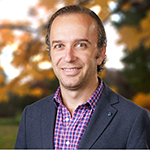 Dr. Semir Beyaz is an Assistant Professor at Cold Spring Harbor Laboratory and Director of the Seckin Endometriosis Research Center for Women’s Health. He received his PhD in immunology from Harvard University in 2017. His early work helped define epigenetic and nutrient-sensing pathways that control immune cell lineage identity and intestinal stem cell function, linking aberrant regenerative fitness and impaired immune surveillance to cancer risk. The Beyaz laboratory now investigates how environmental inputs, including nutrients and the microbiome, reprogram the fitness of immune cells and epithelial stem cells through metabolic and epigenetic mechanisms to influence tissue regeneration, immune surveillance, and cancer. More recently, the lab has extended this framework to endometrium biology and endometriosis, examining how altered cellular fitness drives chronic inflammatory remodeling, with the goal of advancing improved diagnostics and disease-modifying therapies.
Dr. Semir Beyaz is an Assistant Professor at Cold Spring Harbor Laboratory and Director of the Seckin Endometriosis Research Center for Women’s Health. He received his PhD in immunology from Harvard University in 2017. His early work helped define epigenetic and nutrient-sensing pathways that control immune cell lineage identity and intestinal stem cell function, linking aberrant regenerative fitness and impaired immune surveillance to cancer risk. The Beyaz laboratory now investigates how environmental inputs, including nutrients and the microbiome, reprogram the fitness of immune cells and epithelial stem cells through metabolic and epigenetic mechanisms to influence tissue regeneration, immune surveillance, and cancer. More recently, the lab has extended this framework to endometrium biology and endometriosis, examining how altered cellular fitness drives chronic inflammatory remodeling, with the goal of advancing improved diagnostics and disease-modifying therapies.
Coco Chu, Associate Editor
 Coco Chu, PhD, received her doctorate from the Institute for Immunology, Tsinghua University in 2015. She conducted her postdoctoral research at Weill Cornell Medicine, Cornell University, from 2015 to 2020, after which she was promoted to Instructor of Immunology and served in that role from 2020 to 2022. In 2022, she joined the Institute for Immunology, Tsinghua University as an Assistant Professor of Neuroimmunology and was promoted to Associate Professor in 2025. The Chu Laboratory strives to understand the interactions between the microbiota, immune system, and nervous system, to discover previously unrecognized crosstalk, to unveil underlying molecular mechanisms, and to help develop the next generation of preventative, therapeutic, or curative treatment strategies.
Coco Chu, PhD, received her doctorate from the Institute for Immunology, Tsinghua University in 2015. She conducted her postdoctoral research at Weill Cornell Medicine, Cornell University, from 2015 to 2020, after which she was promoted to Instructor of Immunology and served in that role from 2020 to 2022. In 2022, she joined the Institute for Immunology, Tsinghua University as an Assistant Professor of Neuroimmunology and was promoted to Associate Professor in 2025. The Chu Laboratory strives to understand the interactions between the microbiota, immune system, and nervous system, to discover previously unrecognized crosstalk, to unveil underlying molecular mechanisms, and to help develop the next generation of preventative, therapeutic, or curative treatment strategies.
Erin M. Gibson, Associate Editor
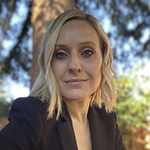 Dr. Gibson is a neuroscientist and Assistant Professor at Stanford University School of Medicine. She received her Bachelor of Science from Duke University and her PhD in Behavioral Neuroscience at the University of California, Berkeley studying the role of the circadian system in homeostatic processes, including neuroendocrine, immune, and neural stem cell regulation. As a postdoctoral scholar at Stanford University, Dr. Gibson studied the effect of neuronal activity on myelin microstructure in health and disease. Dr. Gibson’s lab focuses on understanding how glial cells modulate neural circuits throughout development and in brain disorders, with a focus on the intersection between sleep/circadian and glial biology in disorders such as autism spectrum disorders, multiple sclerosis, and Alzheimer’s disease. By using in vivomouse and patient-derived iPSC in vitro models, the Gibson lab aims to understand the intrinsic molecular drivers and cell–cell interactions that regulate myelin dynamics throughout life, with the ultimate goal of finding therapeutic strategies to maintain myelin health.
Dr. Gibson is a neuroscientist and Assistant Professor at Stanford University School of Medicine. She received her Bachelor of Science from Duke University and her PhD in Behavioral Neuroscience at the University of California, Berkeley studying the role of the circadian system in homeostatic processes, including neuroendocrine, immune, and neural stem cell regulation. As a postdoctoral scholar at Stanford University, Dr. Gibson studied the effect of neuronal activity on myelin microstructure in health and disease. Dr. Gibson’s lab focuses on understanding how glial cells modulate neural circuits throughout development and in brain disorders, with a focus on the intersection between sleep/circadian and glial biology in disorders such as autism spectrum disorders, multiple sclerosis, and Alzheimer’s disease. By using in vivomouse and patient-derived iPSC in vitro models, the Gibson lab aims to understand the intrinsic molecular drivers and cell–cell interactions that regulate myelin dynamics throughout life, with the ultimate goal of finding therapeutic strategies to maintain myelin health.
Benjamin G. Hale, Associate Editor
 Benjamin G. Hale is Full Professor of Medical Virology at the University of Zurich, Switzerland. He earned his PhD in molecular virology studying influenza virus virulence factors under the supervision of Rick Randall at the University of St Andrews, Scotland. He then did postdoctoral training in innate immunity with Adolfo Garcia-Sastre at the Icahn School of Medicine at Mount Sinai in New York, USA. His current research focuses on fundamental aspects of virus–host interactions and molecular immunology. In particular, his group is interested in the human interferon system and combines basic research with clinical cohort studies to uncover mechanisms underlying human susceptibility to viral disease and the potential to mitigate susceptibility with new therapeutic strategies.
Benjamin G. Hale is Full Professor of Medical Virology at the University of Zurich, Switzerland. He earned his PhD in molecular virology studying influenza virus virulence factors under the supervision of Rick Randall at the University of St Andrews, Scotland. He then did postdoctoral training in innate immunity with Adolfo Garcia-Sastre at the Icahn School of Medicine at Mount Sinai in New York, USA. His current research focuses on fundamental aspects of virus–host interactions and molecular immunology. In particular, his group is interested in the human interferon system and combines basic research with clinical cohort studies to uncover mechanisms underlying human susceptibility to viral disease and the potential to mitigate susceptibility with new therapeutic strategies.
Guideng Li, Associate Editor
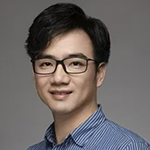 Dr. Guideng Li is the Deputy Director of the Suzhou Institute of Systems Medicine at the Chinese Academy of Medical Sciences. He earned his PhD in immunology from the University of California, Irvine in 2012 and completed his postdoctoral training at the California Institute of Technology (Caltech) under Nobel laureate David Baltimore. Dr. Li currently leads the Laboratory of Engineering T Cell Immunity, which focuses on elucidating the molecular mechanisms that govern effective versus dysfunctional immune responses in chronic diseases. Leveraging these mechanistic insights, his team aims to develop innovative therapeutic strategies with strong potential for clinical translation.
Dr. Guideng Li is the Deputy Director of the Suzhou Institute of Systems Medicine at the Chinese Academy of Medical Sciences. He earned his PhD in immunology from the University of California, Irvine in 2012 and completed his postdoctoral training at the California Institute of Technology (Caltech) under Nobel laureate David Baltimore. Dr. Li currently leads the Laboratory of Engineering T Cell Immunity, which focuses on elucidating the molecular mechanisms that govern effective versus dysfunctional immune responses in chronic diseases. Leveraging these mechanistic insights, his team aims to develop innovative therapeutic strategies with strong potential for clinical translation.
Esther Obeng, Associate Editor
 Dr. Esther Obeng is an Associate Professor in the Department of Pediatrics at Emory University School of Medicine and an Attending Physician in the Bone Marrow Transplant Service at the Aflac Cancer and Blood Disorders Center/Children’s Healthcare of Atlanta. Dr. Obeng received her MD and PhD from the University of Miami in Coral Gables, Florida. She completed her residency in the Boston Combined Residency Program in Pediatrics and Pediatric Hematology/Oncology fellowship training at the Dana-Farber Cancer Institute and Boston Children’s Hospital. Her postdoctoral training was in the laboratory of Dr. Benjamin Ebert, where she generated the first mouse model of the most frequently mutated gene in myelodysplastic syndrome, the splicing factor SF3B1. She is the recipient of a Harold Amos Medical Faculty Development Award from the American Society of Hematology and the Robert Wood Johnson Foundation and the Gertrude B. Elion Cancer Research Award from the American Association for Cancer Research. Dr. Obeng’s independent research program continues to be focused on the genomics of myeloid malignancies and deciphering how acquired splicing factor and epigenetic regulator mutations lead to pre-leukemic conditions such as myelodysplastic syndrome and clonal hematopoiesis. She is also leading translational research studies to determine the incidence and clinical significance of clonal hematopoiesis in pediatric cancer survivors and patients with sickle cell disease.
Dr. Esther Obeng is an Associate Professor in the Department of Pediatrics at Emory University School of Medicine and an Attending Physician in the Bone Marrow Transplant Service at the Aflac Cancer and Blood Disorders Center/Children’s Healthcare of Atlanta. Dr. Obeng received her MD and PhD from the University of Miami in Coral Gables, Florida. She completed her residency in the Boston Combined Residency Program in Pediatrics and Pediatric Hematology/Oncology fellowship training at the Dana-Farber Cancer Institute and Boston Children’s Hospital. Her postdoctoral training was in the laboratory of Dr. Benjamin Ebert, where she generated the first mouse model of the most frequently mutated gene in myelodysplastic syndrome, the splicing factor SF3B1. She is the recipient of a Harold Amos Medical Faculty Development Award from the American Society of Hematology and the Robert Wood Johnson Foundation and the Gertrude B. Elion Cancer Research Award from the American Association for Cancer Research. Dr. Obeng’s independent research program continues to be focused on the genomics of myeloid malignancies and deciphering how acquired splicing factor and epigenetic regulator mutations lead to pre-leukemic conditions such as myelodysplastic syndrome and clonal hematopoiesis. She is also leading translational research studies to determine the incidence and clinical significance of clonal hematopoiesis in pediatric cancer survivors and patients with sickle cell disease.
João Pereira, Associate Editor
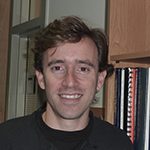 João Pereira, PhD, is a tenured Professor in the Department of Immunobiology and a member of the Yale Stem Cell Center at Yale University. His research focuses on niche cell subsets and niche-derived signals controlling hematopoietic stem cells and lymphopoiesis. His laboratory uses in vivo imaging, multi-omics, and advanced mouse models to investigate how microenvironmental cues control stem and progenitor cell positioning, migration, and lineage fate, with the goal of uncovering fundamental principles of immune system development, organization, and function.
João Pereira, PhD, is a tenured Professor in the Department of Immunobiology and a member of the Yale Stem Cell Center at Yale University. His research focuses on niche cell subsets and niche-derived signals controlling hematopoietic stem cells and lymphopoiesis. His laboratory uses in vivo imaging, multi-omics, and advanced mouse models to investigate how microenvironmental cues control stem and progenitor cell positioning, migration, and lineage fate, with the goal of uncovering fundamental principles of immune system development, organization, and function.
Pamela Rosato, Associate Editor
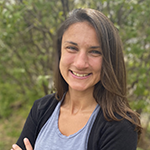 Dr. Pamela Rosato is an Assistant Professor in the Department of Microbiology and Immunology at the Geisel School of Medicine at Dartmouth, where she has been contributing since 2020. She earned her PhD at Dartmouth and trained as a postdoc with David Masopust at the University of Minnesota. Her lab investigates tissue-resident memory T cell biology in the context of healthy and malignant tissue with a particular focus on the brain.
Dr. Pamela Rosato is an Assistant Professor in the Department of Microbiology and Immunology at the Geisel School of Medicine at Dartmouth, where she has been contributing since 2020. She earned her PhD at Dartmouth and trained as a postdoc with David Masopust at the University of Minnesota. Her lab investigates tissue-resident memory T cell biology in the context of healthy and malignant tissue with a particular focus on the brain.
Staff
Sylvia Cuadrado, Senior Managing Editor
 Sylvia has worked at The Rockefeller University Press since 2005.
Sylvia has worked at The Rockefeller University Press since 2005.
Jennifer McGullam, Production Editor
 Jenny joined Rockefeller University Press in 2018. She has been working in scientific and medical publishing for several years, most recently as a Production Editor at Springer Nature. Jenny studied English and linguistics at Dartmouth College and enjoys baking, reading, and exploring the outdoors.
Jenny joined Rockefeller University Press in 2018. She has been working in scientific and medical publishing for several years, most recently as a Production Editor at Springer Nature. Jenny studied English and linguistics at Dartmouth College and enjoys baking, reading, and exploring the outdoors.
Rochelle Ritacco, Preflight Editor
 Rochelle is responsible for the preparation of figures for RUP publication—checking production quality, conforming style, and clarity of presentation. She is a skilled digital artist with expertise in many media applications. Rochelle began freelancing at RUP in 2007 and shortly thereafter joined the staff. Prior to RUP, she assisted the campus photographer at Monmouth University. Rochelle received her BA in communications from Seton Hill University and has completed two certificate programs, Digital Art (BCC) and Filmmaking (NYU). She is on the board of the Belmar Art Council. Rochelle lives along the dazzling north Jersey shore with her husband and daughter.
Rochelle is responsible for the preparation of figures for RUP publication—checking production quality, conforming style, and clarity of presentation. She is a skilled digital artist with expertise in many media applications. Rochelle began freelancing at RUP in 2007 and shortly thereafter joined the staff. Prior to RUP, she assisted the campus photographer at Monmouth University. Rochelle received her BA in communications from Seton Hill University and has completed two certificate programs, Digital Art (BCC) and Filmmaking (NYU). She is on the board of the Belmar Art Council. Rochelle lives along the dazzling north Jersey shore with her husband and daughter.
Laura Smith, Senior Preflight Editor
 Laura began her career at The Rockefeller University in 1996 in the Office of Public Affairs. In 1997, she joined the RU Press as assistant to then director Michael Held. In 2002, under the guidance of Mike Rossner, Laura began image screening. She has since traveled abroad and throughout the United States training others in the detection of image manipulation. Laura lives in the Hudson Valley with her daughter and rescue kitty "Wiki".
Laura began her career at The Rockefeller University in 1996 in the Office of Public Affairs. In 1997, she joined the RU Press as assistant to then director Michael Held. In 2002, under the guidance of Mike Rossner, Laura began image screening. She has since traveled abroad and throughout the United States training others in the detection of image manipulation. Laura lives in the Hudson Valley with her daughter and rescue kitty "Wiki".
Advertisement




